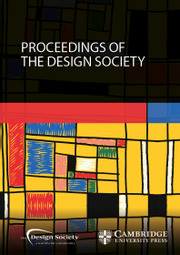No CrossRef data available.
Article contents
DESIGNING FOR LEGAL PRACTITIONERS: LESSONS LEARNED FROM LEGAL TECH DEVELOPMENT AND IMPLEMENTATION
Published online by Cambridge University Press: 19 June 2023
Abstract
Recently, the design and digitalisation approaches have become increasingly utilised in the legal context, typically under the names of legal design and legal tech. One of their goals is to help legal practitioners be more efficient and to provide better quality and more comprehensive legal services. Also, given that both movements rely heavily on participatory and co-design, they will require increased support not only from design practitioners but also from design researchers and educators. Therefore, this paper investigates, from a design research viewpoint, the opportunities and challenges of developing and implementing legal tech, with a particular focus on legal practitioners. It reports on four cases of designing legal tech solutions and their implementation in a law firm. The main insights are related to the importance of value perception through participatory and co-design, the need for efficient and effective testing methodologies, and the opportunity to test a wide range of design methods and tools in the legal context. The paper also complements the legal design and legal tech literature with additional arguments on why designing in the legal context is challenging compared to designing in other domains.
Information
- Type
- Article
- Information
- Creative Commons
- This is an Open Access article, distributed under the terms of the Creative Commons Attribution-NonCommercial-NoDerivatives licence (http://creativecommons.org/licenses/by-nc-nd/4.0/), which permits non-commercial re-use, distribution, and reproduction in any medium, provided the original work is unaltered and is properly cited. The written permission of Cambridge University Press must be obtained for commercial re-use or in order to create a derivative work.
- Copyright
- The Author(s), 2023. Published by Cambridge University Press

